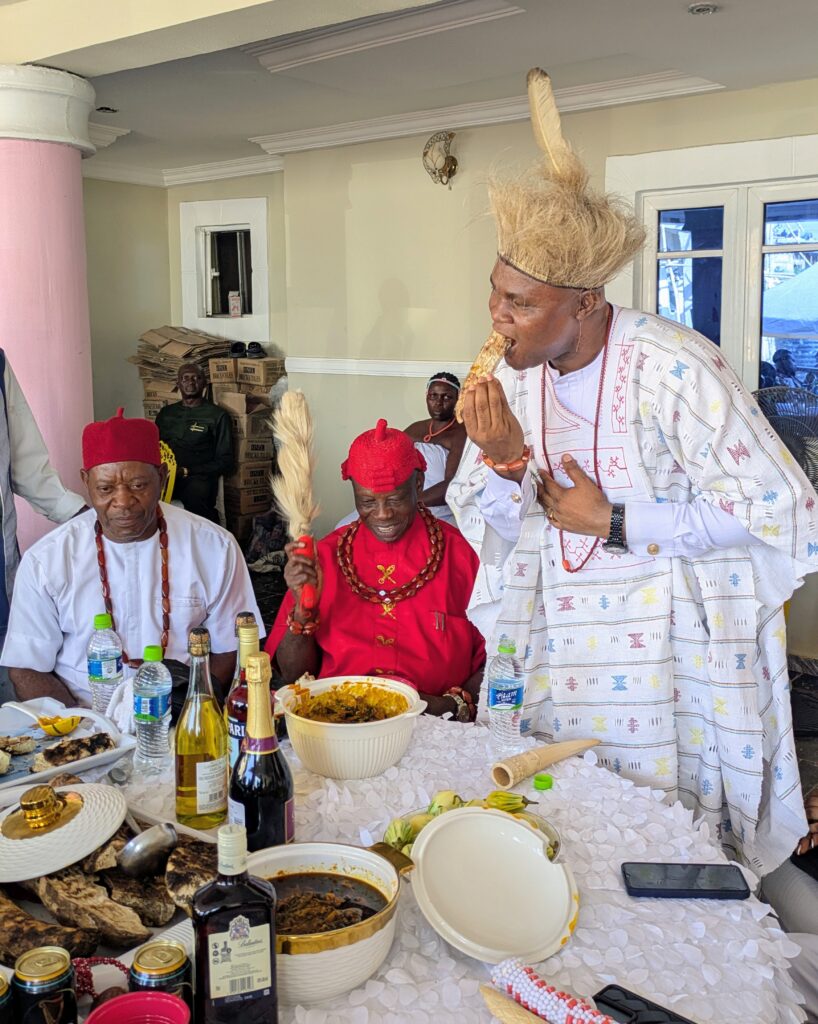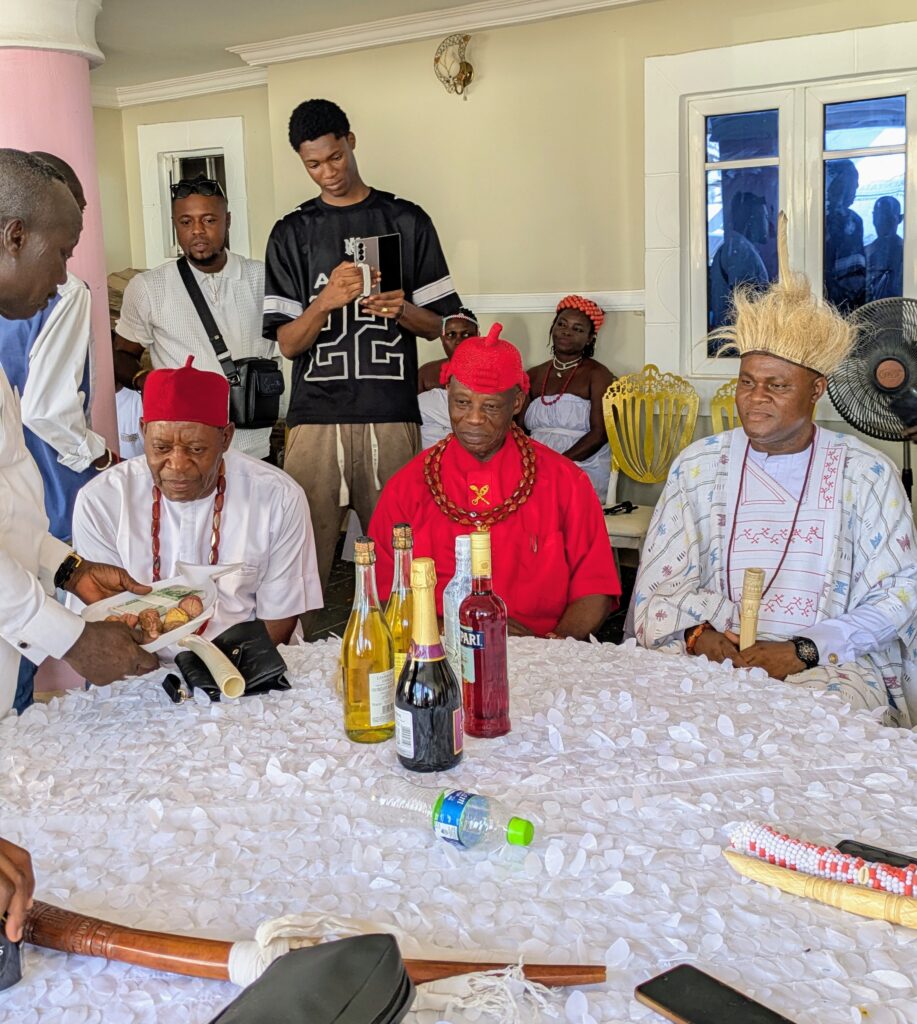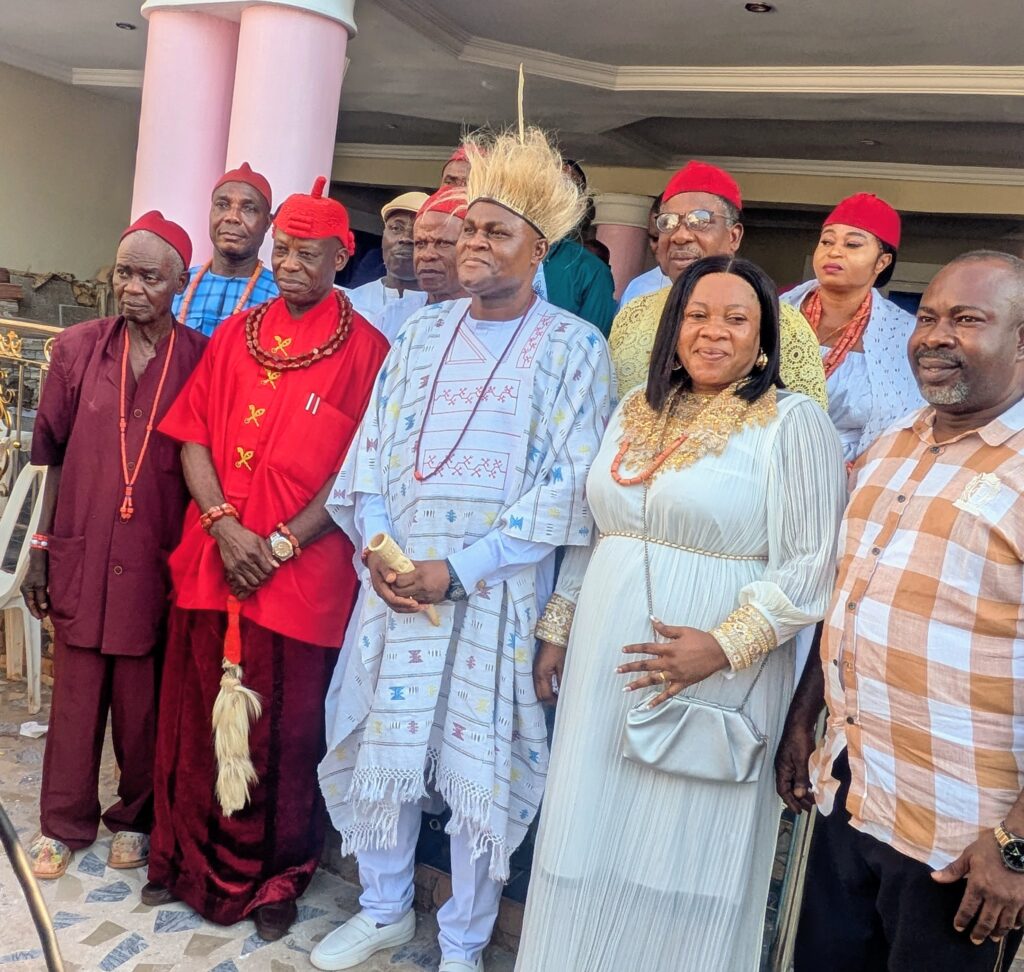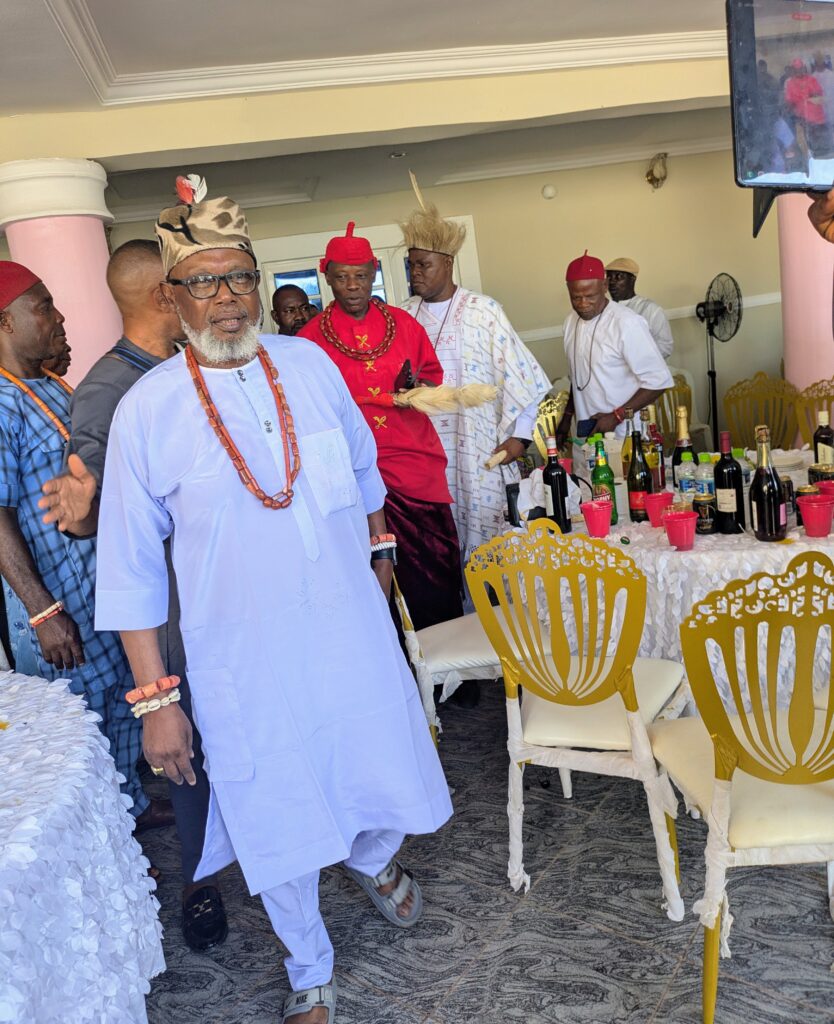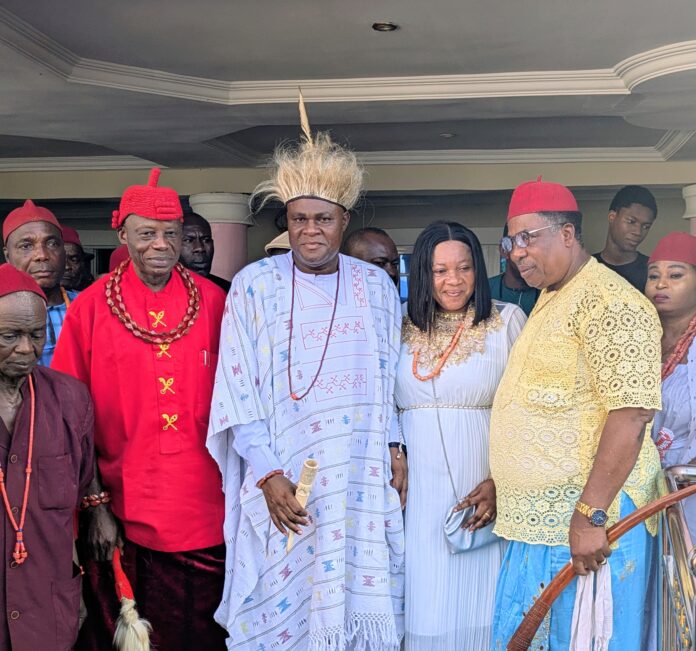In the heart of Ubulu-Unor, the air was alive with the aroma of roasted yams, the rhythm of drumming, and the warmth of family as Mayor Chinedu Onujeko, the Odogwu of Ubulu-Unor, hosted the annual Iwaji (New Yam) Festival at his country home on Thursday. The event drew relatives, friends, community members, and dignitaries, all gathered to celebrate a season’s hard work, tradition, and togetherness.
For the Odogwu, the Iwaji festival—traditionally—is far more than a feast. “This festival marks the end of months of hard work on the farms and the beginning of a season when the new yam can be enjoyed,” he explained, his voice full of gratitude.
In Ubulu-Unor, where farming depends entirely on natural rainfall, every harvest is a gift from above. “It is God who waters the crops from heaven and gives us food to eat,” the Odogwu said. He reminded attendees that the ritual of the Iwaji is sacred: not even he, as chairman of the Delta North Traditional Council Chiefs, may eat the new yam before the ceremony. “Ignoring this tradition carries consequences, especially for those charged with preserving our customs,” he cautioned.
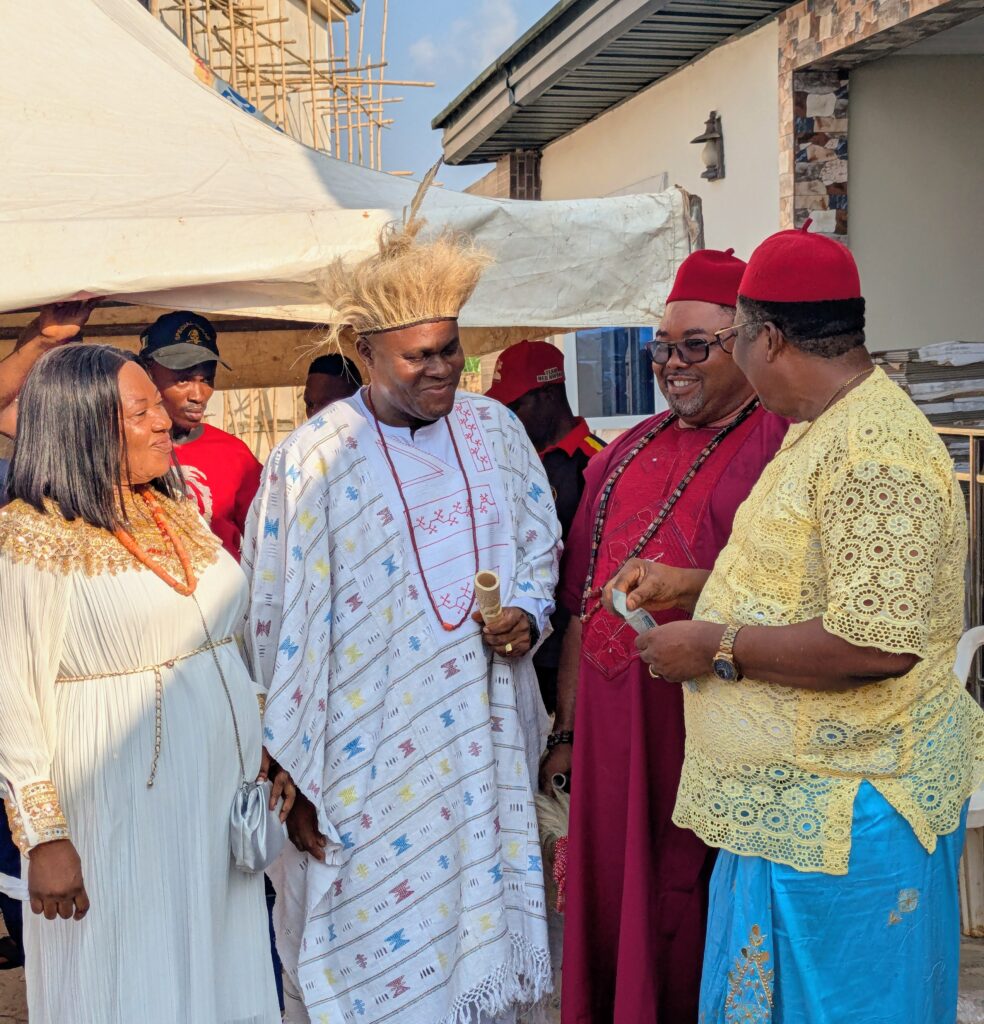
In his prayer, the Odogwu asked for good health for all participants, emphasizing that health is more precious than wealth and vital for sustaining labour into the next farming season. He also thanked those who traveled to Ubulu-Unor, wishing them blessings, protection, and a safe journey home.
His Majesty Obi Kikachukwu Henry Afamefune, the Obi of Ubulu-Unor and Second Vice Chairman of the Delta State Council of Traditional Rulers, captured the festival’s cultural essence:
“Yam is the king of all crops cultivated on the farm,” he said. “In our community, the Iwaji is not just about food—it is a reminder that after months of planting and labouring, there is a harvest to celebrate. Each Chief in my cabinet hosts their own Iwaji ceremony, and after all have performed theirs, the Obi formally celebrates the main festival.
“This year, I have shelved my own Iwaji, but I am here to support the Chiefs and affirm that the Odogwu is performing his ceremony in line with our customs. We are here to honour him and wish him many more years of fruitful celebrations. In our tradition, we say ‘Kanye wé’—the Iwaji has been done this year, and by God’s grace, we shall do it again next year.”

High Chief Gabriel Ohai, Odogwu of Ogwashi-Uku, highlighted the festival’s role in uniting families and communities:
“This festival has always brought people together,” he said. “Yam is the wealthiest crop we have in our land today, and celebrating it reminds us of our heritage, our blessings, and the prosperity we hope for in the coming year. We have prayed for him, and I have food prepared for him already.”
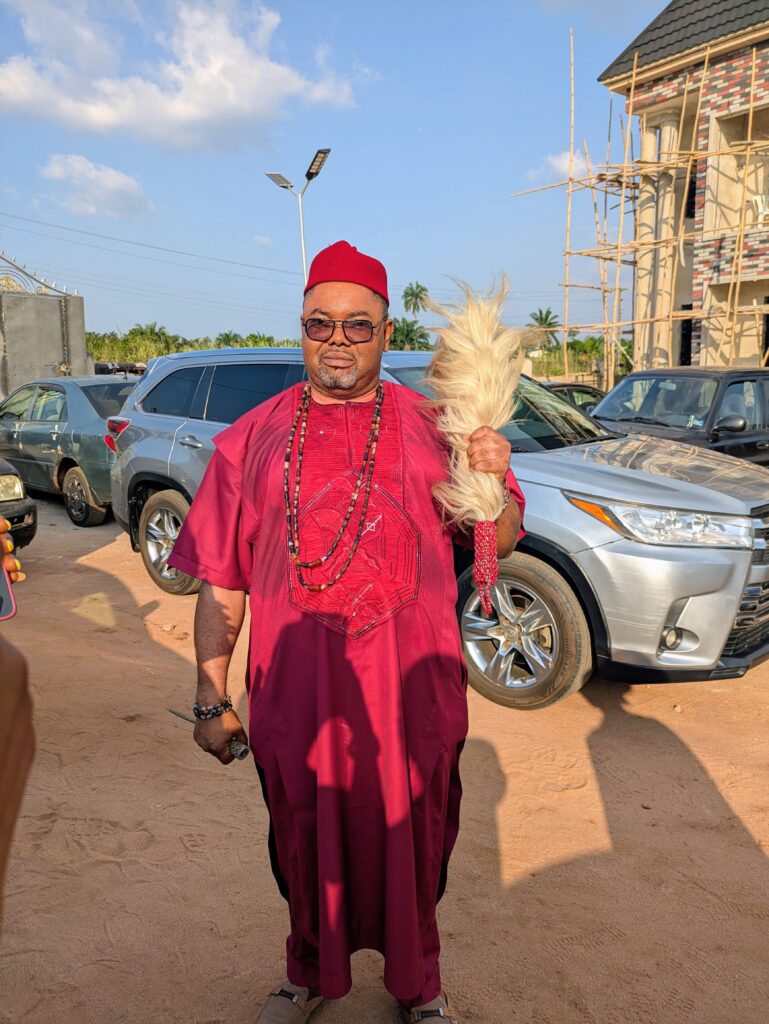
Sir Barr. Chief Joe Asem, the Agbadi of Ewulu, spoke of the harmony between tradition and faith:
“We are committed to every project that strengthens our culture and community. Over the years, we have worked to harmonize African tradition with the Catholic faith. Today, I stand representing Christ and our tradition. When we uphold what is right in our culture, we cannot go wrong.
“That is why we are here—to offer our prayers for him. Just as people go to church to seek blessings, this ceremony is also a spiritual moment preparing us for the coming year. May it bring strength, favour, and long life to the family.”
Chief Mrs. Chinwe Onujeko, the Ugoluunor of Ubulu-Unor, added a personal touch that resonated with everyone present:
“Celebrating the Iwaji is a blessing not everyone experiences,” she said. “It is a privilege to plant a crop and, at the end of the season, witness a bountiful harvest to share with family, friends, and the community.
“My prayer for my husband, myself, and our family is for strength from God, divine wisdom to know what to sow, and guidance to nurture it for the benefit of our village and community. Without God, we are nothing.”
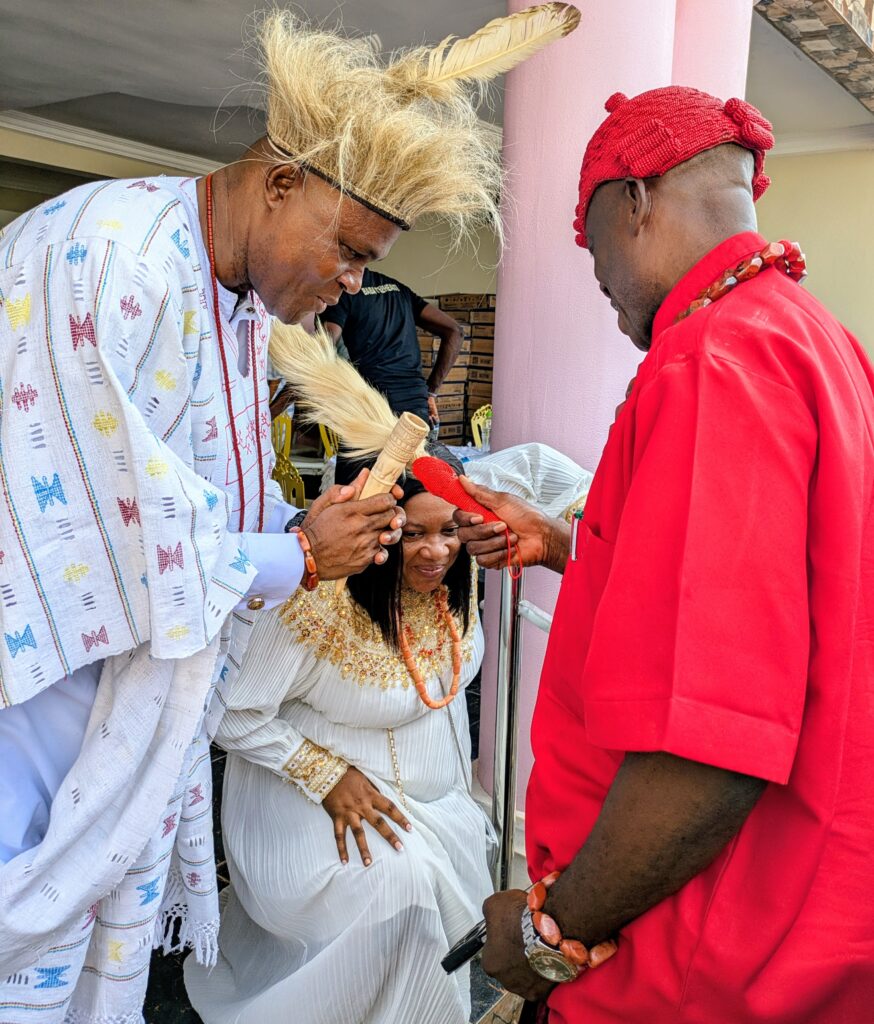
Dr. Uche Innocent Odoziane, Chief Priest of Ubulu-Unor Kingdom, reflected on the festival’s spiritual significance:
“Chief Mayor Chinedu Onujeko is my uncle—my father’s younger brother—and like a father to me. Celebrating the Iwaji with him feels like being home. He is a man who carries everyone along, a man of the people, and today we celebrate life and the conclusion of a fruitful harvest.
“The Iwaji is a time to give thanks to the Supreme God and our deities. If these rituals are not performed, the gods do not respond to prayers. Our traditions remain strong, and we celebrate prosperity, unity, and blessings.”

The festival also intertwined with politics, as High Chief Gabriel Ohai, a prominent party leader and youth mobilizer, reaffirmed his commitment to strengthening the All Progressives Congress (APC) at the local government level and declared his interest in contesting the party chairmanship:
“I am prepared. I have been a youth leader in the LGA and served as LDS Chairman of Christian Born. I am a foundation member and understand how the party operates.
“The influx of people into the APC is anticipated. The party is big enough for all. With unity, we are working together again, and we are grateful to God. My message is simple: stay committed, stay united. Our focus is on strengthening the party and positioning it for victory.”
This year’s Iwaji festival was more than a harvest celebration—it was a vivid testament to the enduring power of culture, faith, family, and leadership, bringing together generations in gratitude, joy, and hope for the year ahead.
